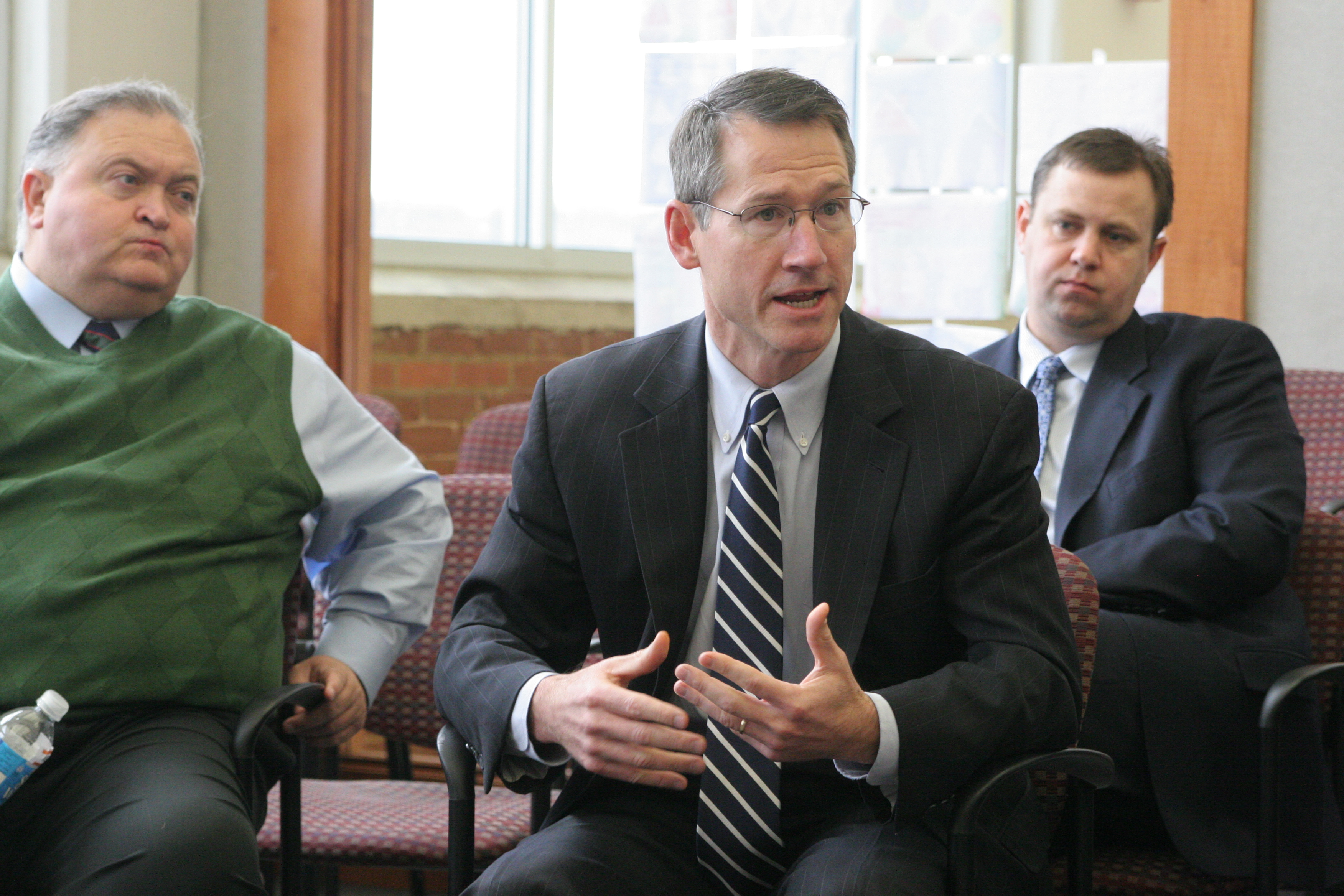NASHVILLE - Sen. Bo Watson said Wednesday his bill letting teachers discuss "weaknesses" in "controversial" scientific theories in the classroom is not an attack on evolution, but critics denounce as a backdoor effort to undercut teaching of it in Tennessee public schools.
"It's not an evolution bill. That's a red herring. It germinates an emotional response that [critics] want," said Watson, R-Hixson, a day after former House Speaker Jimmy Naifeh, D-Covington, derisively referred to the measure in a House panel as the "monkey bill."
That was an allusion to the law Tennessee lawmakers passed in the 1920s banning the teaching of evolution in public schools. It later led to the infamous 1925 "Monkey Trial" in Dayton of school teacher John Scopes.
Watson presented the bill, saying it seeks to "create an environment" in public schools "that encourages students to explore scientific questions, learn about scientific evidence, develop critical thinking skills and respond appropriately and respectfully to differences of opinion about controversial issues."
The bill also says "teaching of some scientific subjects, including, but not limited to, biological evolution, the chemical origins of life, global warming, and human cloning, can cause controversy."
Hume-Fogg High School biology teacher Wesley Roberts testified against the bill. Noting he has studied the Scopes trial "extensively," Roberts said "part of our rich cultural history in Tennessee is opposition to evolution education. This bill is part of that tradition. It is not inviting students to discuss the controversy of the Vietnam war. It's not encouraging students to discuss the true value of pi. It's aimed at science and evolution."
Roberts questioned whether the bill is an effective "mandate to allow any idea, no matter how scientific or nonscientific into the classroom." He cited examples including what he said was a Chinese creation myth "in which fleas become humans."
He warned that "however attractive it may sound to have the discussions of nonscientific ideas in our science classroom, it's not the souls of our students that are at stake here. What is at stake is how they will perform on standardized tests in which they will be compared to students across the state, the nation and the world."
Dr. Robin Zimmer, of Knoxville, an environmental toxicologist, spoke on behalf of the bill. He said current instruction methods are no way to teach science and "our falling national aptitude reflects this. This bill offers an improvement in our approach to science education."
He cited figures that the United States now ranks 31st in the world when it comes to science education. More "critical analysis" should be allowed in classrooms, he argued.
Zimmer is listed as director of the Center for Faith and Science International on the group's website.
Also testifying on behalf of the bill was Harold Morrison, who said he was a Nashville biology teacher with more than 30 years experience teaching evolution.
"Now I would never try to proselytize any of my students into believing what I think," he said. "But I do think students should be knowledgeable of scientists who go against conventional thought so students can draw their own conclusions."
Sen. Andy Berke, D-Chattanooga, asked Zimmer if he thought there were "reasonable scientific controversies about the theory of evolution."
Calling it a "great question," Zimmer said there are "numerous ones." He said when he was involved a decade or so in the human genome project, scientists talked about "junk DNA" that amounted to "useless remnants" of human evolution. But he said more recently, scientists say it appears much of it has a function such as "suppressing cancer or whatever."
Speaking to reporters later, Watson, who was a biology major in college, said "evolution doesn't explain everything. Currently evolution is the most legitimate scientific process that we have to explain how the world works around us. But there are competing ideas" such as creationism and intelligent design.
He said ideas don't necessarily equate to scientific theory and may fall more into areas such as philosophy or religion.
"They may not meet the scientific standard, but if they come up in a science class ... and it's not listed in the state's curriculum, a teacher should not be off-putting and say that's not in the curriculum - if you want to talk about intelligent design you should go down the hall to the religious studies class. Teachers should be able to say, look, there are people who view that as a competing idea."
But teachers still would have to teach the science curriculum, Watson said.
There was no vote on the measure Wednesday.

